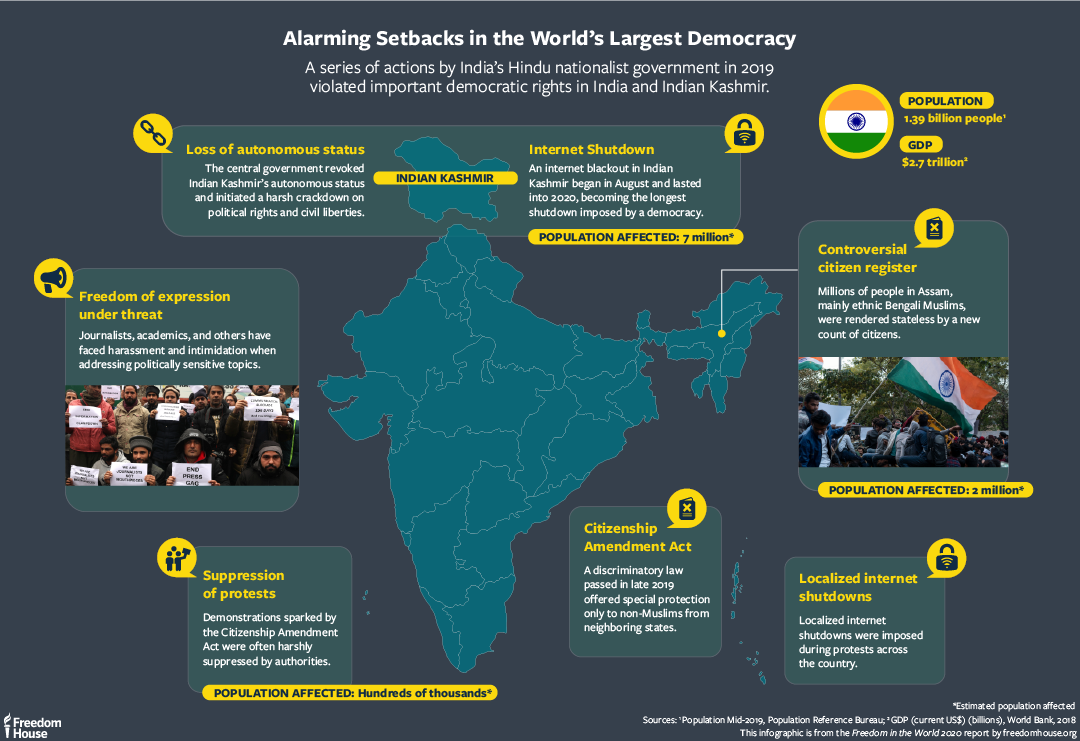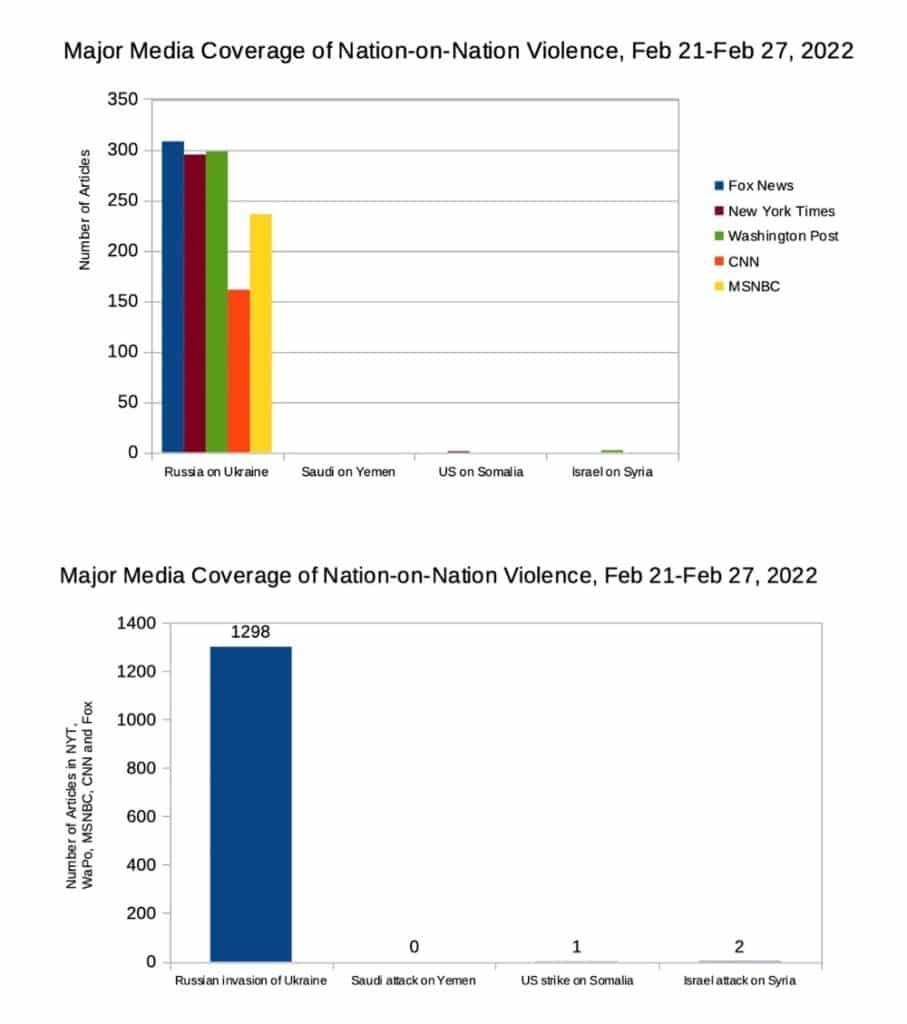🎭 Stories We Tell Ourselves About Inequality
How three news stories from the past week show us what we value
Three stories from the past week:
ONE.
The Submersible.
As a monumental effort was launched to find the four wealthy industrialists stuck at the bottom of the ocean in a shoddily made submersible, on the other side of the Atlantic, Greek coast guardsmen on a rescue vessel just … watched … as 700 migrants from Afghanistan, Pakistan and the Middle East slowly sank to their deaths.
TWO.
The Prime Minister
Before he became prime minister of India, Narendra Modi was the only person ever denied entry to the United States based on a religious freedom law - a decision the George Bush administration made in 2005 based on his failure to lift a finger as hundreds of Indian Muslims were brutally assaulted and murdered in Gujarat, a state where he served as chief minister. Yet this week, Modi was welcomed at a lavish state dinner by President Biden. No mention was made of the Gujarat incident or the human rights abuses that have occurred under his watch since then.
THREE.
The War
The tragic war in Ukraine continues, as does the near unlimited amount of military, economic and refugee aid the West continues to provide to Ukraine. Coverage of Ukrainian refugees also continues unbated. Meanwhile, refugee and asylum seekers from Mexico, Central America, India, and the Middle East - areas where western military actions have disrupted lives for generations - receive far less government aid, and in some cases physical abuse from those covering their story.
Some would say these are stories of hypocrisy. I say they are tales of indifference. That misery magnified is not meaningful - that the number of people in pain is sometimes less important than their identity. How do we explain this trend? What counterarguments exist that expose the flaws in our logic? And how can we act differently?
ONE
The Narrative: Society cares more about issues they relate to.
People suffering tragedy on vacation … we can relate to that right? It’s something they’ve built entire movie franchises on. On the other hand, I can’t think of movie franchises that document the harrowing struggles of a refugee family fleeing war, enduring displacement, and then dissonance as they find a new home.
It’s understandable that people care more about those that look like them, speak their language, and share their cultural background. It makes sense that people would be interested in a submersible lost on a visit to a tragic western cultural icon, more than the sinking of a refugee ship full of people who’s names they can’t even pronounce. I mean the guy on the news says it straight up:
The Counterargument: By this logic, hardly anyone outside the United States would care about American tragedies. And yet, the global response to 9/11 is one of many stark counterexamples of this trend.
In the days following September 11, 2001, the residents of Padua, Italy erected a memorial for the victims of 9/11 nestled among traditional Italian masterpieces like the Capella deli Scrovegni. To this day, every year in Kosovo’s capital city of Pristina, a group of Kosovo’s police, firefighters and other crisis responders gather on 9/11 around an American flag lowered to half-staff. And in India, an annual film festival dedicated to honoring the victims of 9/11 attracts larger crowds every year as it “celebrates life by fighting destruction with creation.”
Say This Instead: This week President Obama called the disparity between coverage of the Titan submersible and the sinking of the refugee ship an example of "obscene inequality.” Refugees die daily - hundreds of them. My family was almost amongst their number. In reality we never really pay much attention to these kinds of stories. It’s just that the juxtaposition of the sinking of the submersible and the refugee boat brought to the public’s attention the contrast of “worthy and unworthy” victims.
Do This Instead: Demand that governments, news organizations and non-profits humanize the victims of disasters that go unnoticed. News coverage of migrants tends to include photos of large groups of indistinguishable people, seen in a boat far off in the distance, or lying with tarps covering their faces. Contrast this with coverage of the Titan submersible, which humanized the wealthy marine adventurers by sharing clear photographs of their faces, smiling with their families. If you can’t put a face to a tragedy, you will find it hard to imagine the individual humanity of the victims, further contributing to the marginalization of their stories.
TWO.
The Narrative: Sometimes you have no choice.
Listen, says the U.S. government, when Modi was just the chief minister of a state in India, we could hold him accountable for his actions. Banning him from travel to the U.S. made sense and had marginal political repercussions. He’s prime minister of the world’s largest democracy now, we can’t just ban him from the country entirely. India is a strategic ally, a valued trading partner and the most populous country in the world. Not having a relationship with them means we let others (China) develop that relationship instead.
The Counterarugment: If anything, it becomes even more important for the United States to hold leaders like Modi to account as India’s influence and power grows. During Modi’s tenure religious minorities have been assaulted, killed and had their rights diminished, while journalists covering their stories have been censored and prosecuted. President Biden often refers to the the president of China as a dictator, but fails to call out Modi for behavior just as problematic.
Say This Instead: Sometimes you have to do business with people you don’t like. But you don’t have to do it quietly, and you certainly don’t have to invite them to a state dinner. Discussing what are factual, credible and very real problems with allies is doing them a favor. As the most powerful nation on the Earth, it is important for the U.S. government to challenge injustice. In this case, the only one who raised a question about Modi’s human rights record at the White House was a single Wall Street Journal reporter - who then got harassed online for doing so.
Do This Instead: Question preconceptions. Educate yourself about rising intolerance in the world’s democracies, including India. A friend’s book is a good start.
THREE.
The Narrative: It is just more important.
The war in Ukraine gets more attention because it is a potential global war. Superpowers like the United States, China and Russia are involved and taking sides. There is a credible fear that the conflict could lead to nuclear escalation. Ukraine is also an economic powerhouse, supplying grain and other products to the world, while Russia is a major petroleum exporter.
The Counterargument: Little differentiates Russia's invasion of Ukraine from the last two decades-worth of similar superpower invasions of other sovereign nations, things like U.S. attacks in or on more than a half-dozen nations throughout the Middle East, South Asia, and Africa. Many nations have threatened to use nuclear weapons, and many have contravened international law and norms (including the U.S.).
We don’t feel the economic impact of wars directly (Americans were at war from 2003 to 2022 and barely felt it) - but that doesn’t mean wars elsewhere don’t affect us economically. Hardly ever mentioned in the press, the war in Ethiopia has been raging since 2020. The conflict has led to thousands of deaths and the displacement of over 2 million people. These displaced people have a tremendous economic impact on surrounding nations, including the United States, where they are arriving by the thousands.
Say This Instead: Human suffering ignores political boundaries, and the war in Ukraine should be covered globally. But news coverage is not a zero-sum game, especially when the same story is just repeated hundreds of times in one day. There is a direct correlation between news coverage and response: research shows that news coverage encourages nations to provide aid and individuals to donate more to the conflicts mentioned therein. Imagine how many conflicts would end if more people knew about them?
Do This Instead: Write letters to the editor to news organizations encouraging them to set aside pre-determined airtime to covering neglected conflicts - for instance the war in Ethiopia - with the same vivid characterization “from children whose cancer treatment was interrupted to an elderly Russian woman who was arrested for carrying a war protest sign,” seen in the coverage of the Ukraine conflict.
🎧 NEW Episode! UnfairNation Podcast
✈️ Catch Me If You Can
SF to the Bay | July 17 - 19
Phoenix | July 25-26
📡 Signal Boost
Signal Boost is here! It is the best way to share a job announcement, funding opportunity or a business or service with a committed and engaged audience of nearly 20,000 subscribers. Think of it like a modern version of old-fashioned newspaper classifieds. Most importantly, Signal Boost is FREE!
Here’s what’s being boosted this edition:
My friends at the Center of Muslim Experience at Arizona State University are hiring a new Program Coordinator who can assist in building the new center.
University of California, Riverside is looking for an Assistant Vice-Chancellor of Title IX, Equal Opportunity and Affirmative Action - this would be the university's Title XI Officer.
Another academic job - Emory University School of Law is looking for a Program Coordinator for its Center for Civil Rights and Social Justice which was launched this year (hybrid).
Equality California is the nation’s largest LGBTQ+ civil rights organization and looking to fill a Political Director position (hybrid).
Ok fine, another job in academia. Every day will be different as a civil rights investigator at Boston University's EEO office (onsite).
📅 Reading & Watching
Silo, on Apple TV+
🙌🏽 FairNation
An oldie, but a goodie. They don’t just cleanup when their team wins either (see what I did there).
What have future generations ever done for us?






